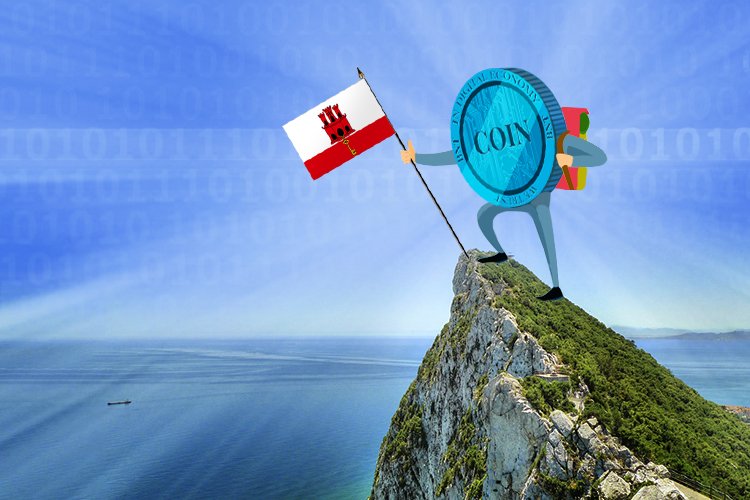Gibraltar Legislation Is In TOP-20 For E-Ready And Blockchainers

A small territory in the south of Spain is a point of attraction for business, and this lasts for quite a long time. There are several reasons for that. Historically, Gibraltar became a United Kingdom territory, due to the outcomes of different wars. The Crown supported this territory for centuries.
Gibraltar entered new millennium as a part of European Union being considered a “special territory” with separate legal jurisdiction from the UK. It can issue its own laws which would prevail the UK ones.
Here are some more facts about the territory.
-
In 2000, Gibraltar was included in the list of 35 jurisdictions identified by the Organisation for Economic Co-operation and Development (OECD) as a “tax haven”.
-
IMF considers the territory as an offshore financial center with a high rating. In 2007 the IMF reported that “Gibraltar has a well-regulated financial sector. The authorities are concerned with protecting the reputation and integrity of Gibraltar as a financial center <...> It has a good reputation internationally for cooperation and information sharing.“
-
Besides that, in 2008 the European Court admitted that, under its current constitution, Gibraltar has almost complete internal self-governance and can have separate taxation on its territory. This was implemented in 2010. Also, Gibraltar is a VAT-free zone.
-
According to the GFCI (Global Financial Centres Index) as of 2011, Gibraltar was ranked 63rd in the world, and 8th of the leading offshore financial centers (OFCs).
TOP-20 “E-readiness” participant
“E-readiness” refers to a country's capacity and state of preparedness for the digitalization. Gibraltar was ranked in the top 20 centers, coming 20th after major capitals and leading offshore centers and this is a solid achievement. E-readiness is measured with the development of information and communications technology (ICT) infrastructure, a degree of preparedness of a country's government, citizens and businesses to use ICT. It is possible that this rating was one of the reasons for Gibraltar being so lucrative for the crypto industry.
Crypto Industry in Gibraltar
In January 2016, a discussion paper “Virtual currency: Online Regulatory Framework” was issued by HM Government of Gibraltar (HMGoG) and Cryptocurrency Working Group (CWG). Its primary focus was the regulation of Virtual Currencies and its intermediaries.
The same year, Gibraltar Stock Exchange (GSE) announced the “BitcoinETI”, an asset-backed Exchange Traded Instrument which has invested exclusively in Bitcoin has become the first European regulated product.
In May 2017, the Government of Gibraltar, the Ministry of Commerce and the Gibraltar Financial Services Commission (GFSC) published a document called “Proposals for a DLT Regulatory Framework”. According to the authors, they referred to the continued work undertaken by the Cryptocurrency Working Group as of January 2016.
In August of the same year, the first Bitcoin ATM has been installed on the territory of Gibraltar. November was marked with the announcement of the new project — Gibraltar Blockchain Exchange (GBX). It was presented at the Blockshow Asia conference.
As of January 1st, 2018, Gibraltar’s regulations on Distributed Ledger Technology came into effect, bringing regulatory oversight to the DLT and crypto sphere. The framework is mostly for “firms engaging in activities not otherwise subject to regulation and that use DLT for the transmission or storage of value belonging to others”.
On July 23rd, the official public opening of GBX took place, and the trading was launched.
The main features of the DLT regulatory framework in Gibraltar
-
Firms and activities that are subject to another regulatory framework will continue to be regulated under that framework.
-
Board will be assisted by a specialist advisory panel which will be appointed by the Minister, comprising technology and regulation experts.
-
Proposed transitional arrangements will permit firms that apply in the first three months from the operative date to continue providing DLT activities until their application is determined. Although initial costs will be funded from existing GFSC resources, the proposed DLT licensing regime is intended to be sustained by annual license fee income. Initial application fees will be low to attract new startups — in contrary to other countries such as South Korea, where crypto business already loses its benefits.
-
The GFSC will have responsibility for the authorization and supervision of DLT firms. The Chief Executive to set appropriate conditions and restrictions relating to use case, business model, market, geographical exposure, product, service, size of a firm, the scale of operation, management experience and track record, and financial and technical risk. Such conditions and restrictions may be applied to all DLT firms, to a single firm or groups of firms, or by category of firm, use case, business model or risk profile, or by type of product and service provided.
The Nine Principles for DLT firms
-
A DLT firm must conduct its business with honesty and integrity.
-
A DLT firm must pay due regard to the interests and needs of each and all its customers and must communicate with its customers in a way which is fair, clear and not misleading.
-
A DLT firm must maintain adequate financial and non-financial resources.
-
A DLT firm must manage and control its business effectively, and conduct its business with due skill, care, and diligence; including having proper regard to risks to its business and customers.
-
A DLT firm must have effective arrangements in place for the protection of client assets and money when it is responsible for them.
-
A DLT firm must have effective corporate governance arrangements.
-
A DLT firm must have systems in place to prevent, detect and disclose financial crime risks such as anti-money laundering and countering terrorist financing (AML/CFT).
-
A DLT firm must ensure that all systems and security access protocols are maintained to appropriate high standards.
-
A DLT firm must be resilient and must develop contingency plans for the orderly and solvent wind down of its business.
This material has been prepared in cooperation with Andreas Vlachos, Academic Coordinator Officer of the Blockchain Initiative at University of Nicosia.